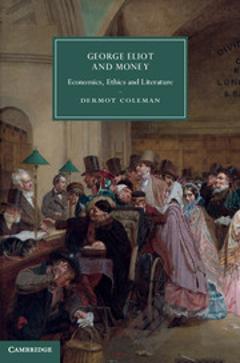George Eliot and Money: Economics, Ethics and Literature
Introduction 1. 'A subject of which I know so little': George Eliot and political economy 2. 'Intentions of stern thrift': the formation of a vernacular economics 3. 'A money-getting profession': negotiating the commerce of literature 4. Calculating consequences: Felix Holt and the limits of utilitarianism 5. Testing the Kantian pillars: debt obligations and financial imperatives in Middlemarch 6. Being good and doing good with money: incorporating the bourgeois virtues 7. The individual and the State: economic sociology in Romola 8. The politics of wealth: new liberalism and the pathologies of economic individualism Appendix A. George Eliot's final stock portfolio, 1880 Appendix B. Was Edward Tulliver made bankrupt? An analysis of his financial downfall Bibliography.
{{comment.content}}








 京公网安备 11010802027623号
京公网安备 11010802027623号